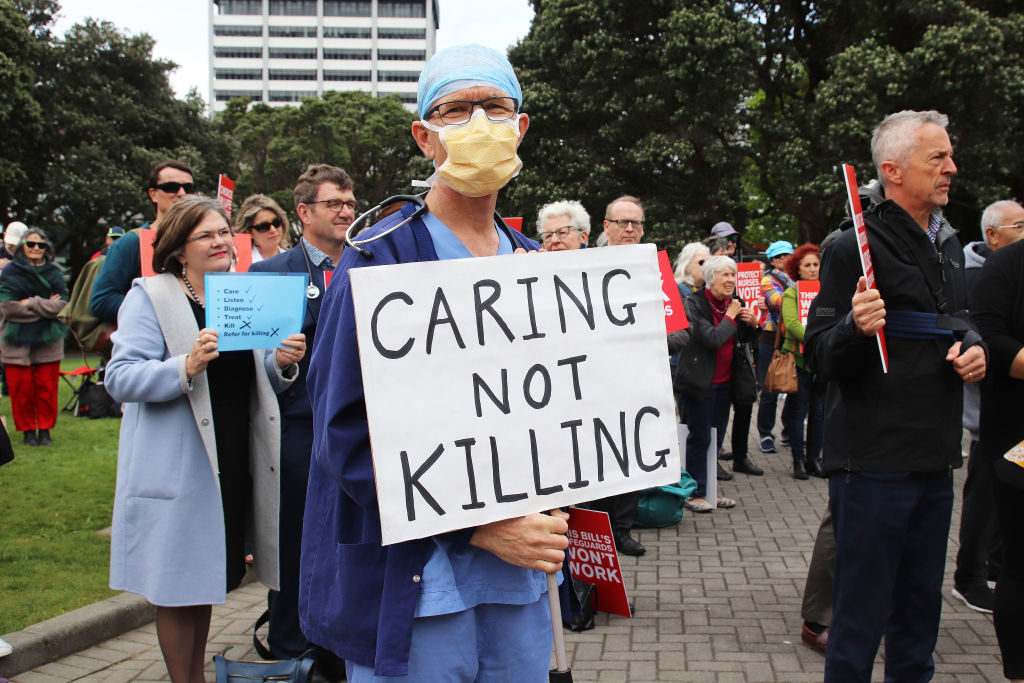According to a report for the New Zealand Ministry of Health, 257 people were legally euthanized or aided in their suicide in one year as a relatively new law took effect. New Zealand legalized euthanasia and assisted suicide in November of 2021, through the End of Life Choice Act of 2019.
Now in its second year, data show 257 New Zealanders died by physician-assisted death, accounting for “about 0.67% of all deaths in New Zealand,” Bioedge reported. Of those who applied for legalized death, “23% more women than men applied for euthanasia or assistance to suicide – 365 women and 296 men.”
The key qualifying criteria of the End of Life Choice Act is that a person be a New Zealand citizen or permanent resident who, according to two assessing medical practitioners, “suffers from a terminal illness that is likely to end the person’s life within 6 months.”
However, as Bioedge noted, “[n]either medical practitioner needs to have any specialist qualification in a field relevant to the particular terminal illness.” In a case where the person wishing to die is immediately judged as competent to do so, a second practitioner is dispatched. If neither one is convinced, then a psychiatrist must determine competency. However, the story noted that “[only] 6 of the 636 people assessed by a first medical practitioner or the 475 people assessed by a second medical practitioner for eligibility between 7 Nov 2021 and 6 November 2022 were referred to a psychiatrist, and each of these were confirmed as eligible other than one person who died before the assessment was completed.”
Likewise, the Act states a person with a disability or mental illness can access assisted dying if they meet the above criteria.” However, it adds, a “person can’t access assisted dying solely because they have a mental disorder or mental illness, have a disability or are of advanced age.”
There is a place for conscientious objections for pro-life practitioners. They may object but must inform Support and Consultation for End of Life in New Zealand (SCENZ) of their objection. SCENZ maintains a database of those willing to assist with legalized suicide.
The majority of participants cited concern over potential abuses and coercive practices if assisted dying became legally available in New Zealand. Their concerns reflect those found in several studies… particularly where the participants were considered vulnerable. Older adults who described themselves as affiliated with a religion were more likely to disagree with legalizing assisted dying. The study noted that it concurs its findings with other research which also shows that religious affiliation is correlated with a “lower wish for assisted death.”
Put simply, the conclusions of the peer-reviewed study, conducted just prior to the End of Life Choice Act taking effect, were as follows: “Results demonstrate that majority of participants were concerned about potential coercion and abusive practices once EAS is legalized. These attitudes were further shaped by religious faith.”








